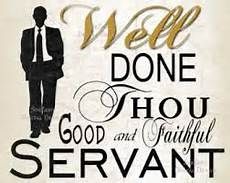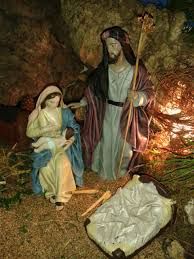ESCHATOLOGY MATTERS
Part 1: Dominion Theology
Before refuting the specific claims of Reformed Theology and some of the spin-offs (next week), today I will present some of the other belief systems that are being taught today.
Dominion Theology
This teaching says that Christians are responsible for bringing about a society in which Christianity rules in all areas of life. Sometimes this is referred to as “Christian Reconstruction” since society will be reconstructed by the Law of God as preached in the Gospels and the Great Commission. It is also known as Theonomy” which teaches that the Second Coming of Christ occurs after the Millennial Kingdom and that all the moral laws contained in the Old Testament apply to us today. Christians are called to create a worldwide kingdom patterned after the Mosaic Law.
This means that Christ will not return to earth until the Christians have established biblical Christianity as the governing principle for all areas of society, both personal and corporate. The goal is political and religious domination of the entire world by implementing the moral laws of the Old Testament including the prescribed punishments. The sacrificial and ceremonial laws are assumed to have been fulfilled in the New Testament. While the Christians are called to implement this new governmental system based on God’s Law, they are not called to rule over it.
Associated with this view are two beliefs with drastic ramifications regarding the nature and future of both Israel and the Church, as well as whether biblical prophecy is to be taken literally or allegorically.
The first belief is that the Church and Israel are essentially one and the same. The second belief is that we are now in the Millennial Kingdom of God. Man, under the covenant of grace is responsible to rule the world, to hold dominion over it in obedience to the laws of God.
Kingdom Now Theology
Dominion Theology and Christian Reconstructionism have become popular in many charismatic churches in the form of Kingdom Now Theology which teaches that since God lost control over the world to Satan when Adam and Eve sinned, God has been trying to reestablish control over the world by seeking a special group of believers known as Covenant People (also known as Joel’s Army) through whom He will bring social institutions (including governments and laws) back under His authority.
With all authority in heaven and earth they will have the power to believe for and speak into existence things that are not, bringing about the Kingdom Age. There will be no separation of church and state. Nor will there be a rapture in which believers are caught up from the earth to join Christ. Believers are simply emotionally “caught up in the moment when Christ returns at the end of the Millennial Kingdom after believers have done their job in bringing God’s laws to earth. According to this view, all the Old and New Testament prophecies regarding Israel’s future apply to the Church, not Israel.
MY Response
The Jews of Israel saw time being divided between two ages: The present one and the one to come (when their Messiah would establish righteousness and rule over them in that righteousness). It would be a time when Israel would be living in the land God had promised to them and when their Messiah would right the wrongs (including those done to her) and would bring peace over all of creation.
To claim that we are now living in this kingdom requires that we allegorize Scripture and disregard passages like 2 Tim. 2:12 which speak of our ruling and reigning with Christ over Israel and the world (in our glorified bodies) during this period. Revelation places the Kingdom over which Christ reigns after all the horrible judgments of the Tribulation have brought devastation on the earth. Clearly none of this has happened yet. To claim that we are in the Kingdom now is to create a new kingdom nowhere mentioned in the Bible.
Regarding the law we’re supposed to implement and enforce, the whole point of the Law of Moses was to show the children of Israel how incapable and powerless they were to keep it. It was meant to point to Christ in whom it would be fulfilled. Since the people had no righteousness of their own, God would supply His own righteousness which would be reckoned to the people through faith in God’s solution—belief in Christ (Rom. 3:21-26).
This theology denies our need for grace and claims that we have all the power and authority we need. Christ is, therefore, unnecessary to usher in anything. Also, the Law was for Israel, not us. We were never under it and were never told to place ourselves under it. Paul stresses this to Gentile believers and chided Jewish believers for willingly placing themselves under bondage again to the Law.
Avoid Legalism
Paul made it explicitly clear that born-again followers of Christ are to avoid all forms of legalism, not placing themselves under it or leading others into it. We are to live in the grace of God by allowing Christ to live His life through us as we walk in the Spirit. To claim that Christians are called to live in, to implement, or to enforce any king of law-based system is in direct opposition to Paul’s teachings regarding the Church.
All the talk about the kingdom now, ignores the fact that the kingdom is Christ’s kingdom, not ours, and the Father doesn’t give it to Him until the sounding of the 7th trumpet in Revelation 11. We are not living in kingdom days, but in days when Satan is the prince of this world and the god of this age. If the Church is called to take dominion over this earth, making it one in which Christianity rules over everything, why hasn’t the Church done it already?
Check out my new YOUTUBE Channel
In-person and PowerPoint Programs
https://www.youtube.com/channel/UCGGGYWdxF0KOcPNNXZk6g
RELATED ARTICLES
ON THE LIGHTER SIDE
Why are we so surprised that we always find something in the last place we look? Do we need to be reminded that when we find something we stop looking?
ATTRIBUTIONS
Inclusion of photographs and/or images in no way implies the endorsement of this blog or its information by the photographer or designer.







Leave A Comment